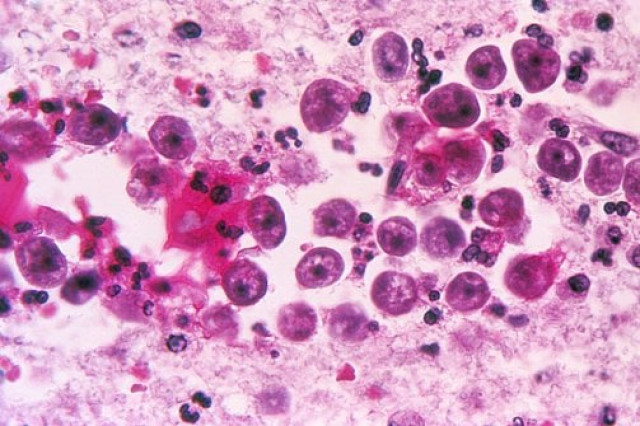'There is a slim chance of survival after a Naegleria fowleri infection’
Prof. Iqbal Chaudhary delivers a detailed lecture on the disease.

Microscopic image showing naegleria fowleri infection of the brain. PHOTO: Centers for Disease Control and Prevention
“The organism is found in fresh water reservoirs such as ponds and lakes and can survive in water as hot as 113 degrees Fahrenheit,” he added.
Prof. Choudhary stressed on the need to train doctors and health workers in dealing with the disease. “According to the health department, 10 people died of the disease last year, between July 7 and October 3.” He pointed out that the amoeba doesn’t grow in water which has been treated properly.
He also said the amoeba enters the body through the nose. “Naegleria normally eats other bacteria but when it gets into the human body, it uses the brain as a source of food.” He pointed out that you cannot get infected by drinking water containing the bacteria.

“It takes between two to 15 days for the symptoms to appear after it enters the body and the infected individual usually dies sometime during the next three to seven days.” He added that the symptoms of the disease include headaches, fever, loss of appetite, vomiting, altered mental state, fits and coma. “The individual may also suffer from hallucinations, blurred vision and a loss of sense of taste.”
The professor pointed out that there were no tests to detect the disease but MRI scans could help to spot it.
“People can protect themselves by avoiding swimming and water skiing in places with warm, still waters,” he advised, adding that people should wear a nose clip when they do.
Published in The Express Tribune, May 24th, 2013.



















COMMENTS
Comments are moderated and generally will be posted if they are on-topic and not abusive.
For more information, please see our Comments FAQ